Vocabulary development Normal Building Vocabulary Worksheets for Ages 5-7
6 filtered results
-
From - To
Unlock your child’s linguistic potential with our "Normal Building Vocabulary Worksheets" designed specifically for ages 5-7! These engaging downloadable worksheets are perfect for fostering vocabulary development while keeping learning fun. Packed with colorful illustrations and age-appropriate activities, these worksheets concentrate on enhancing language skills through interactive exercises. Children will explore synonyms, antonyms, and vocabulary in context, allowing for meaningful learning experiences. Ideal for both classroom and home education, our resources support early learners on their journey to literacy. Boost your child’s confidence and communication skills today with our expertly crafted vocabulary worksheets! Join us in making learning an adventure that sparks curiosity.
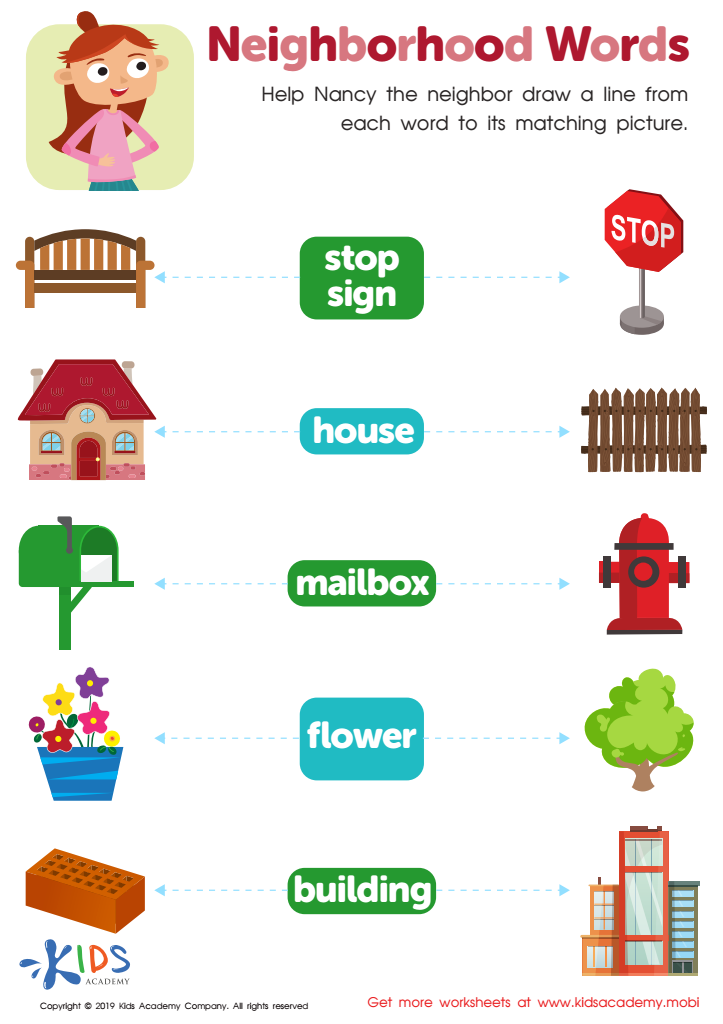

Neighborhood Words Worksheet
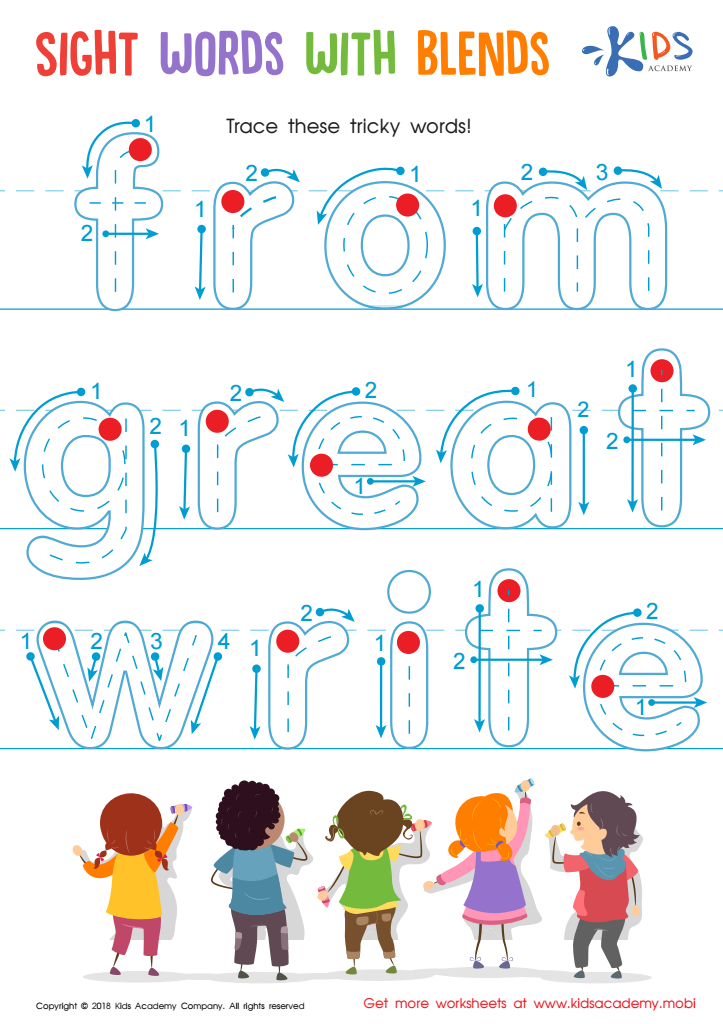

Sight Words with Blends Worksheet
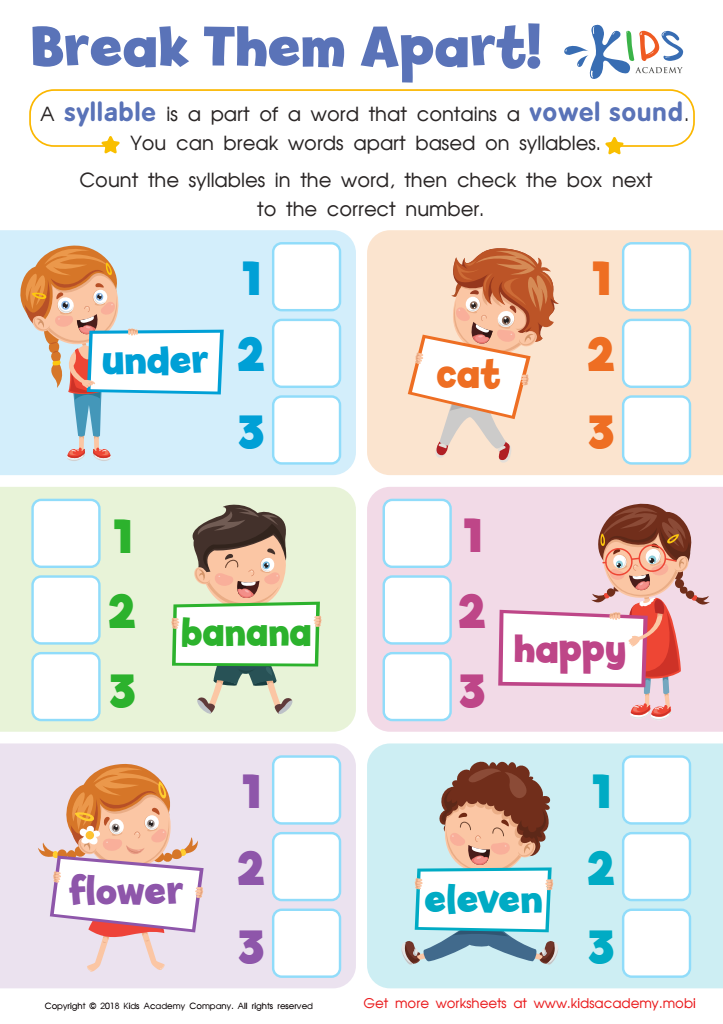

Reading: Break Them Apart Worksheet
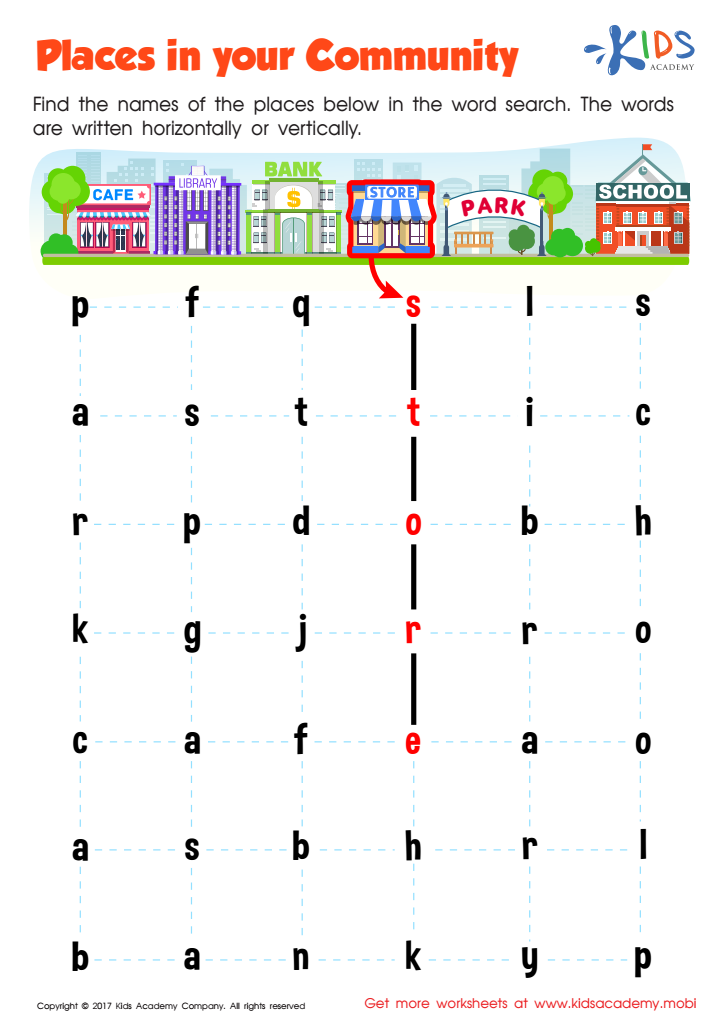

Places in Your Community Worksheet
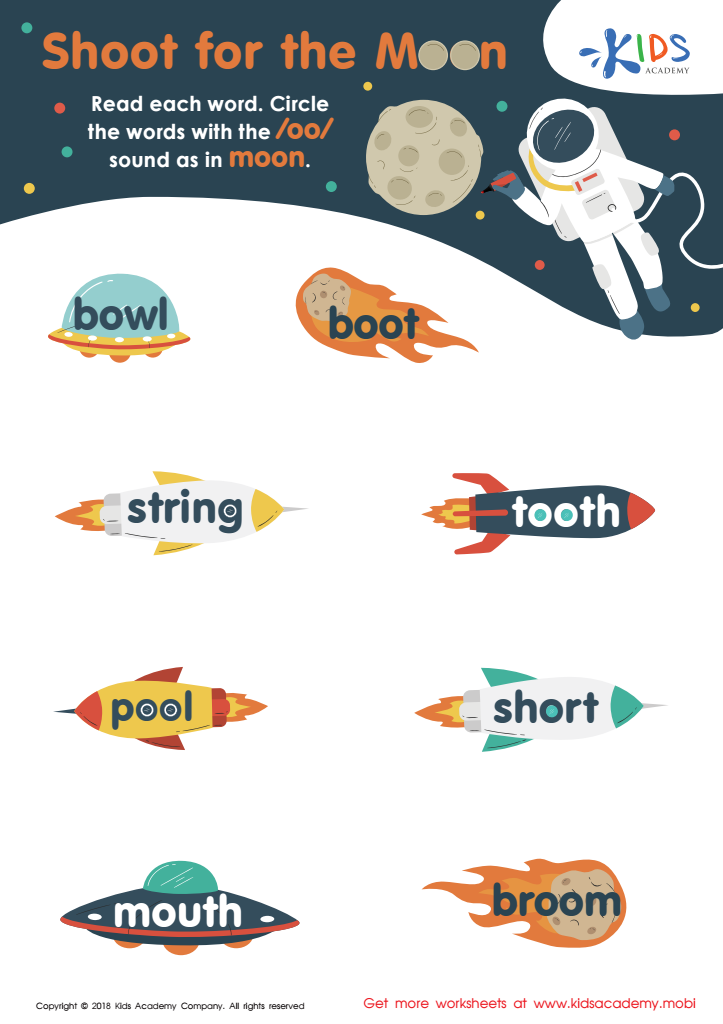

Reading: Shoot for the Moon Worksheet
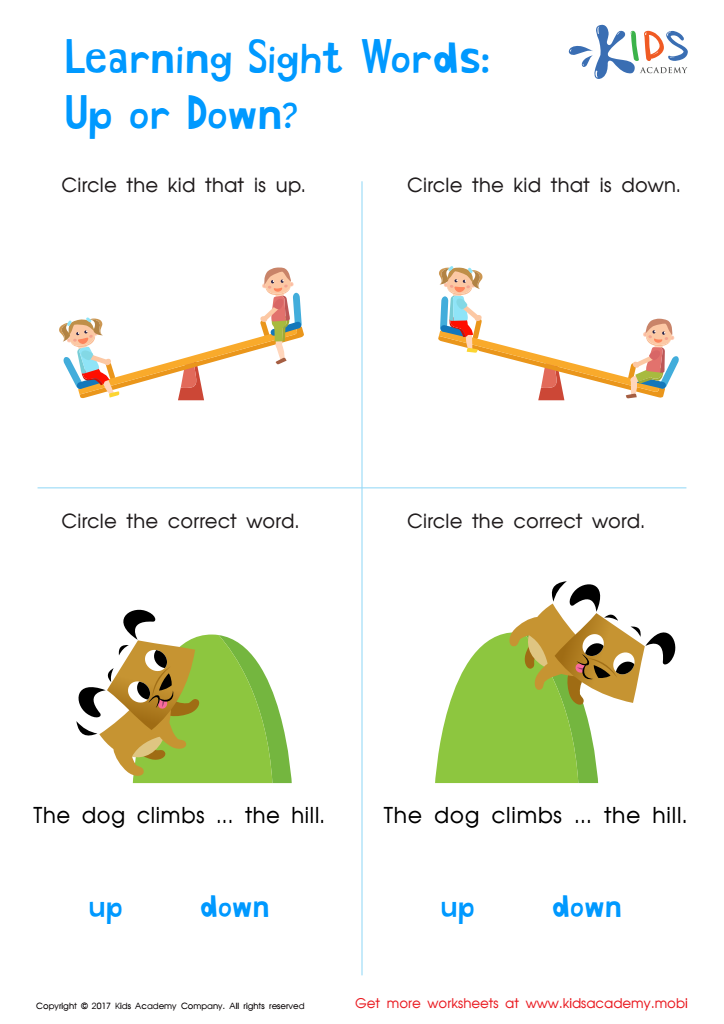

Up or Down Printable Sight Words Worksheet
Vocabulary development is crucial for children ages 5-7 as it serves as the foundation for effective communication and literacy skills. During these formative years, children are rapidly acquiring new words, which influences their ability to express thoughts, understand concepts, and engage with others. A strong vocabulary contributes to reading comprehension, academic success, and emotional intelligence.
Parents and teachers should care about building vocabulary because it directly impacts critical thinking and problem-solving skills. When children can articulate their ideas and feelings, they participate more confidently in discussions, fostering a love for learning. Moreover, vocabulary acquisition plays a significant role in social interactions, helping children develop relationships with peers and adults.
Incorporating vocabulary-building activities—such as reading diverse books, engaging in conversations, and using new words in context—can enhance children's language skills drastically. Encouraging a rich vocabulary not only prepares children for future academic pursuits but also equips them for real-world situations. Ultimately, an investment in vocabulary growth is an investment in a child's lifelong learning journey, enabling them to navigate their world effectively and thoughtfully. It enriches their experiences and empowers them to communicate successfully in various environments.

 Assign to My Students
Assign to My Students














.jpg)


.jpg)








